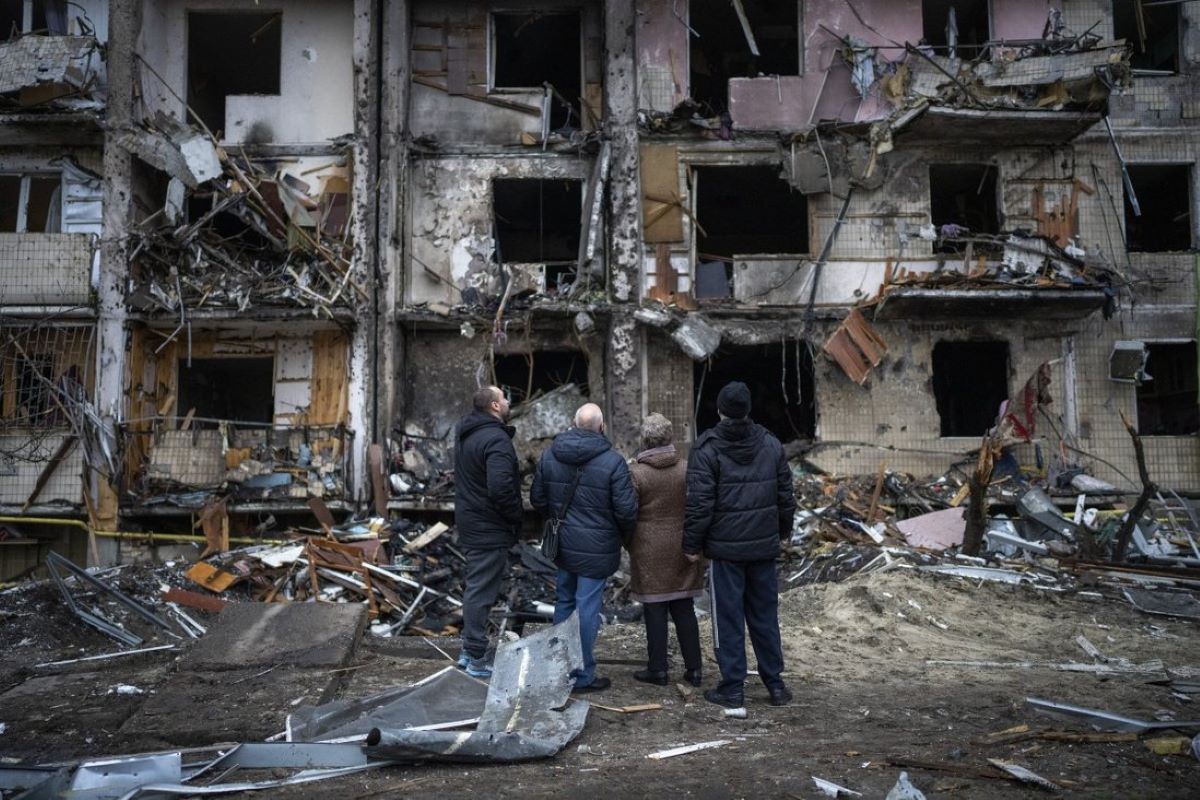Trump threatens Russia with sanctions
US President Donald Trump on Friday threatened far-reaching sanctions against Russia until a ceasefire and a final settlement is reached with Ukraine.
Lack of water and sanitation, cases of diarrhoeal diseases are certain to rise, and the risk of polio and measles outbreaks is also high. Access to diagnostic services and treatments for TB and HIV/AIDS are also being interrupted, as health facilities and roads are reduced to rubble

(AP photo)
Infectious diseases such as HIV, tuberculosis (TB) and Covid-19 are likely to spread in Ukraine as Russia’s invasion displaces people and disrupts health services, Nature reported.
Russian forces invaded Ukraine on February 24. While many have fled the country, those remaining are huddled in basements, subway stations and temporary shelters to protect themselves from bombardment, increasing the risk of Covid spread.
Advertisement
Besides, with lack of water and sanitation, cases of diarrhoeal diseases are certain to rise, and the risk of polio and measles outbreaks is also high. Access to diagnostic services and treatments for TB and HIV/AIDS are also being interrupted, as health facilities and roads are reduced to rubble, the report said.
Advertisement
“I am very, very worried for Ukraine. First and foremost, this may lead to a long-term conflict that will completely destroy the health system,” Lucica Ditiu, a Romanian physician and the Executive Director of the Stop TB Partnership in Geneva, was quoted as saying.
Importantly, the war took place at a time when the country was already facing poor access to immunisations and essential health services due to Covid.
While vaccination rates were dangerously low in Ukraine – about 65 per cent in Kyiv, but as low as 20 per cent in some regions – Covid testing took a hit following the invasion. The country saw a peak of the Omicron wave in February.
This means undetected transmission is probably significant, World Health Organisation Director General Tedros Adhanom Ghebreyesus said at a press briefing earlier this month.
Ukraine was also grappling with an outbreak of vaccine-derived polio with two cases in the country’s west last year, and the most recent in December. Poliovirus was also isolated from 19 healthy contacts.
The conflict has also paused a three-week campaign to vaccinate nearly 140,000 children, launched on February 1; it has also hit polio surveillance, so the virus might be spreading undetected, warns the Global Polio Eradication Initiative, based in Geneva.
Further, Ukraine had a large outbreak of measles that began in 2017 and continued until 2020, with more than 115,000 cases. The country also has one of the world’s highest burdens of multidrug-resistant (MDR) TB. Diagnosis and treatment of TB cases had already plunged by about 30 per cent during the Covid pandemic in 2020 and 2021, leading to increased transmission.
“Ukraine was challenged before the war in providing antiretroviral therapy, and the war has magnified those challenges,” Raman Hailevich, the country director for the Joint United Nations Programme on HIV/AIDS (UNAIDS) was quoted as saying.
The country had been making progress, but “this war can put us ten years back again”, added Valeriia Rachynska, at the All Ukrainian Network of People Living with HIV/AIDS. Amid the indiscriminate shelling, people might not be able to pick up their medicines. “And even if you make it to a medical facility, it has to be stocked with drugs,” Hailevich said.
People fleeing to safety might have a one-month supply of drugs, or two weeks’ worth, or less, Rachynska said. Those who can’t relocate to a safe place, and those in Russian-occupied territories, are the most vulnerable, she added.
Advertisement